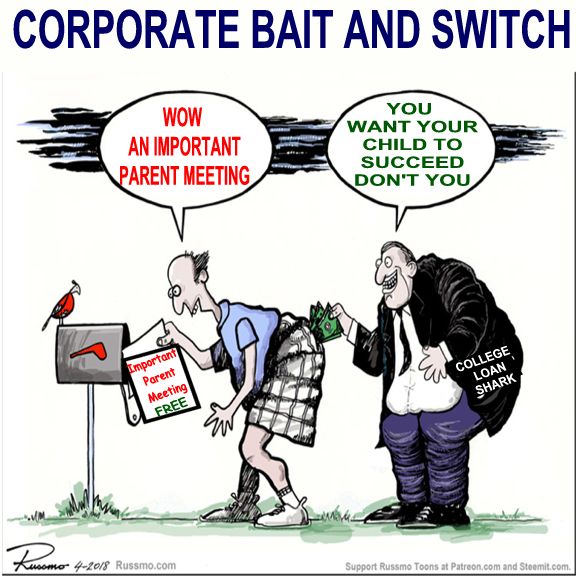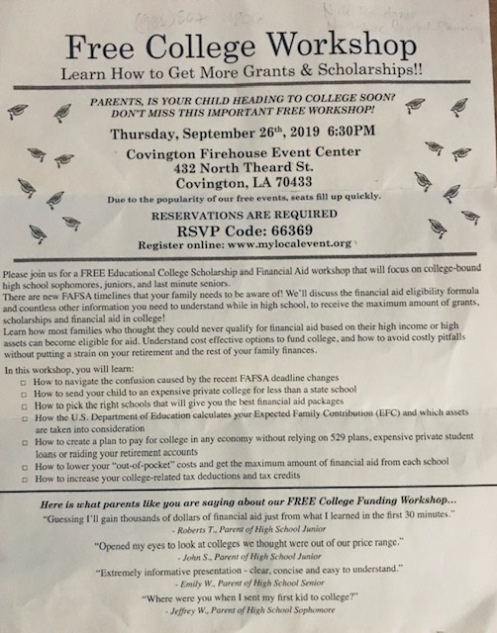“Important Parent Meeting” About College Funding, Yet Sponsor Withholds Identity from Mailer | deutsch29
“Important Parent Meeting” About College Funding, Yet Sponsor Withholds Identity from Mailer
On September 13, 2019, I received a mailer that at first glance appeared to be one that my southern Louisiana school district might send: No frills; just an 8 1/2″ x 11″ sheet of white paper, xeroxed ad folded three times. However, in the place of the return address was written, “Important Parent Meeting.” No address, obviously a means of getting people to open and read the mailer. This would be unusual for our district, which identified itself in the return address as the sender of mail. Still, I thought, it could be the district.
Except for the Cleveland, Ohio, postal permit.
When I opened the mailer, the first words at the top, in large type, were, “Free College Workshop.” As I continued to read, I realized that I was being invited to a meeting requiring a reservation for attendance and promising lots of “FREE” help with college financial aid, including learning
- How to send your child to a private college for less than a state school
- How to create a plan to pay for college in an economy without relying on 529 plans, expensive private student loans or raiding your retirement accounts
- How to lower your “out of pocket” costs and get the maximum amount of financial aid from each school
- How to increase your college-related tax deductions and tax credits
Sounds great!
To seal the deal regarding the marvels of this *FREE College Funding Workshop,” at the bottom of the flier were several supposed testimonials:
“Guessing I’ll gain thousands of dollars of financial aid just from what I learned in the first 30 minutes.” –Robert T, Parent of High School Junior
“Opened my eyes to look at colleges we thought were out of our price range.” –John S., Parent of High School Junior
“Extremely informative presentation– clear, concise and easy to understand.” –Emily W., Parent of High School Senior
“Where were you when I sent my first kid to college?” –Jeffrey W., Parent of High School Sophomore
Lots of words on this mailer.
Lots of enticing promises.
Not one hint of who sent it. Not even a “sponsored by” in the finest of print.










